There’s been a lot of hand-wringing over the seemingly endless devaluations afflicting US airlines’ frequent flyer programs. United customers were the most recent victims when the airline massively devalued its MileagePlus program without notice. American Airlines, which at least gave its customers a heads up beforehand, eliminated its Saver and Award charts and moved further towards dynamic pricing.
But Delta Air Lines stands out as the pioneer of worthless frequent flyer programs–and SkyMiles have long been dubbed “SkyPesos” in reference to their rock-bottom value. I want to find out what’s behind this and why other US airlines are following suit.
Value-seekers and status-seekers
First, it’s helpful to conceptualize the world of frequent flyer programs as effectively having two types of customers: value-seekers and status-seekers. Value-seekers, who comprise roughly 65% of customers, accrue and utilize miles to save money on flights. Status-seekers, who represent the remaining 35%, prioritize reaching higher status tiers and the privileges that come along with it, such as lounge access, priority boarding, and free checked bags.
Historically, domestic US airlines designed their frequent flyer programs to satisfy both types of customers. But that’s beginning to change as airlines realize the drastically higher margins associated with status-seekers.
Delta is focusing on status-seekers and firing everyone else
Delta recognized this potential for higher profit first. They realized that the cost of granting status and associated perks is minimal, while customers seeking these perks are willing to part with hilariously huge numbers of SkyMiles for award tickets, often 10 times what other airlines charge.
They also realized that they can’t cater to these customers while also catering to value-seekers. In a world where Delta caters to both customer types, they might have to offer a business-class ticket for, say, 80,000 miles in order to attract value-seekers. That pricing decision, though, would lower the higher margins from status-seekers willing to pay 600,000 miles for the same ticket. As such, serving both customer types would effectively cannibalize their higher-margin clientele, and Delta has thus decided to jettison value-seekers and focus solely on status-seekers by radically devaluing its award program.
In short, airlines are firing customers who are value-oriented because they’ve realized two things:
- There’s a class of customers that is price/points insensitive
- They can’t serve these customers at the same time as the value-oriented ones
Why this is probably a bad idea
While Delta’s approach will almost certainly be profitable in the short term, for any kind of longer-term success it requires status-seekers to stick around for a while. I think that’s a shaky assumption.
The approach reminds me of Comcast’s: mercilessly squeezing value from its customers–and, by what’s probably more than a coincidence, United Airlines actually hired the former CEO of Comcast (and a man with no experience in the industry), Richard Nunn, as the new CEO of MileagePlus, who, less than a month later, slashed the program to the bone.
The problem is that business models that ignore the preferences of a large swathe of customers generally don’t last very long (though, admittedly, they tend to last much longer in industries like airlines and telecommunications where high barriers to entry prevent new companies from entering the market). Eventually, I think it’s likely that high-margin customers they rely on will defect to bank-branded cards offering points they can transfer to great frequent flyer programs. They’ll begin to realize that the value offered by these cards is so much greater than frequent flyer perks, it just doesn’t make sense to put all their spend on a Delta or United credit card.
In the meantime, Delta and United will have dismantled their only profit centers. They will have reoriented their entire strategy, and the realization may dawn too late that it’s led them down a precarious path.
Finally, and perhaps most importantly, it usually doesn’t make sense to fire your most avid customers, even if they lose you money. Value-seekers, that is, tend to be the most enthusiastic credit card evangelists. As a value-seeker myself, for example, I’ve referred dozens of friends and family members to credit cards. That’s a customer growth engine that shouldn’t be underestimated.
What’s motivating this?
If this strategy is a bad idea, then why are airlines doing it? I think it mostly comes down to an issue of misaligned incentives.
Mathematically, the moment you start dynamically pricing awards, your bottom line improves. You’re shutting down opportunities for your customers to find outsized value and some of those customers, albeit fewer of them, will still buy your product anyway. In other words, if you raise your prices by 10X overnight, as long as more than one-tenth of your customers continue to buy the product, you’re making more money.
The performance of an airline executive is analyzed quarterly, so business decisions that improve profitability along a similar time horizon are understandably alluring. But the consequences of abandoning value-seekers aren’t likely to be felt for much, much longer. The average relationship between a credit card company and its customers lasts 10-12 years, which suggests it will take at least that long for cracks to show.
A contributing, though less important factor, is the booming credit card business in the US–basically, the fact that there are so many points floating around means it’s feasible to charge extortionate award redemption rates. Outside the US, points are harder to come by, and foreign frequent flyer programs continue to adhere to standard award charts, basing their programs’ economics on the relatively simple business of selling excess capacity as awards.
Conclusion
Delta’s and United’s strategy underscores a dilemma facing lots of corporations: the balance between profit maximization and broad-based customer retention. Delta and United have taken the former path–a path littered with defunct corporations we once knew and loved (or, more likely, hated)–and I’m guessing we’ll see other US airlines move in the same direction.
I personally think abandoning value-seekers risks compromising the only genuine profit center these airlines have but, ultimately, we won’t know for a while. I’m eager to see how it plays out.
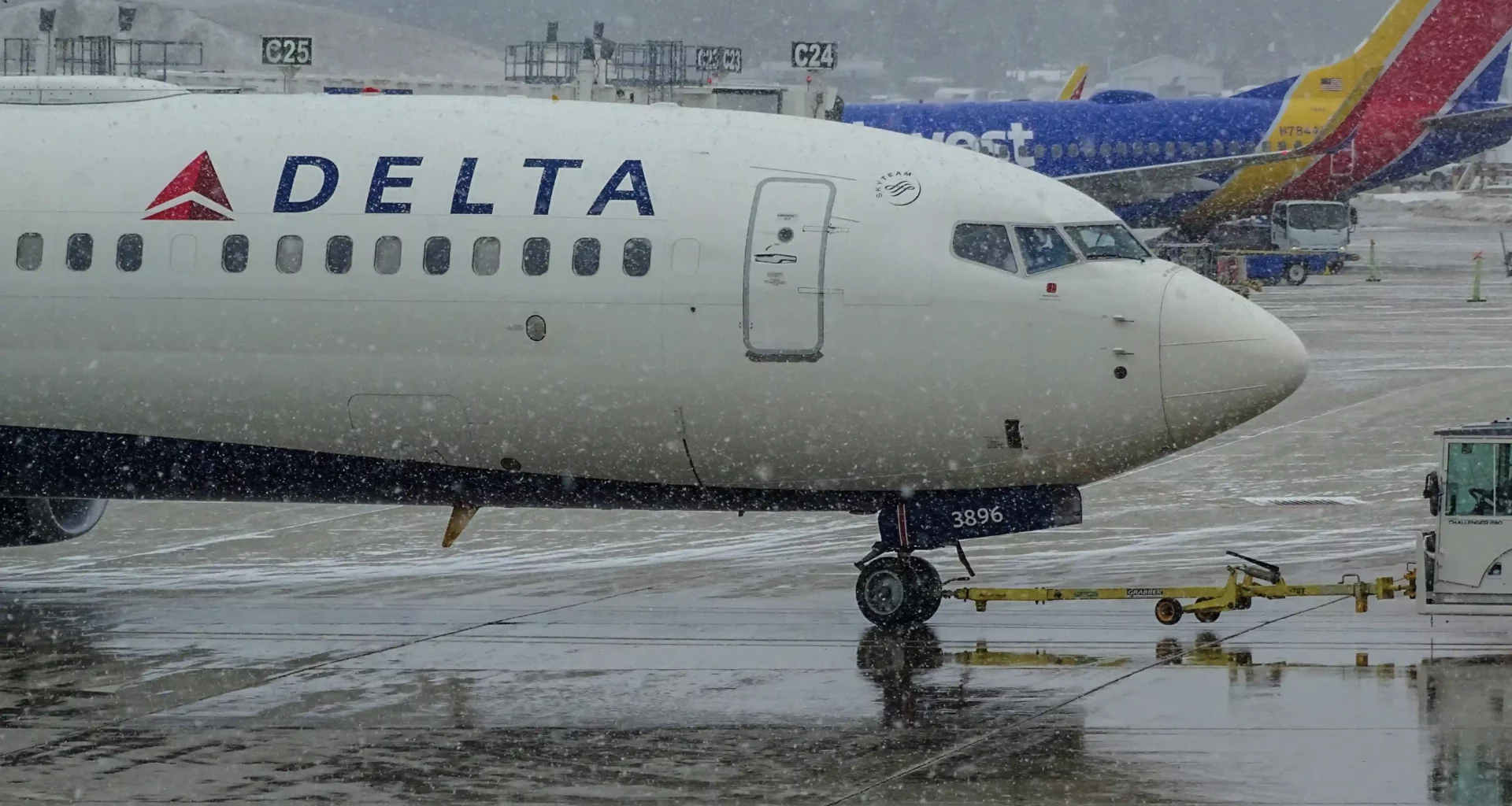
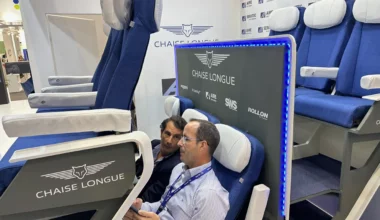

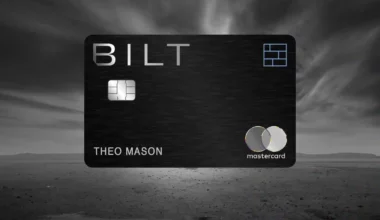
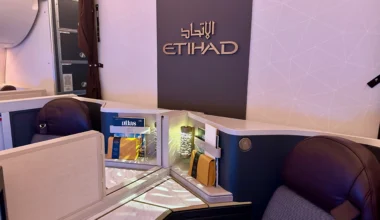
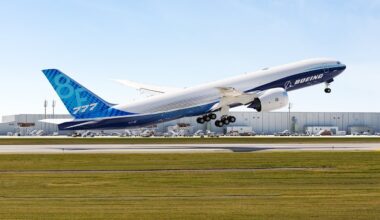
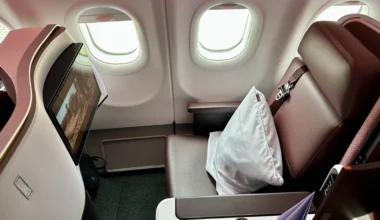
8 comments
Oh, Boy. SkyPesos. Where shall I start? It used to be you could get a high-season economy frequent-flyer award for 60,000 from the US to Europe but no longer. Last I checked, it was 144,000 SkyPesos! Well over half of what it was when they had award charts. I have stopped earning frequent flyer miles with one airline and have started racking up credit card points through banks. At least I can get cash for them as needed, though I can still do ok with them on foreign carriers. The only good program these days is Southwest Rapid Rewards. I use them like crazy and keep getting free flights on them. They’re much more valuable than miles from other carriers, and they follow Southwest’s pricing strategy. I’m much happier, and I get boatload of miles every year. So worth it.
There will come a point where the Airlines including Delta will be pushing out their future customer Base by offering such worthless incentives!! You do not always know where your next Diamonds are coming from !! And by squeezing out the up and coming you are stifling your future customer base that you have to replace every generation!!!
Delta 2MM. Agree with most of what you shared. Not sure “status seekers” are seeking canned wine onboard.
I’m a loyal DL FF 3M+ miles ( and I’d say I am not a value based flyer but the status based) I just went to Chase Saphire for all reasons noted above
Problem overall is no one ( I mean no one ) has the network, service tech and ease of doing business in good and troubled times as DL. There is a reason DL keeps winning.
It’s hard to take this analysis seriously since it doesn’t consider the other customer who spends a lot with airlines, banks which issue cobranded credit cards.
Yawn. I’ve read this kind of post hundreds of times since Delta changed to a revenue-based program in 2015: It’s terrible for the miles & points crowd. Nobody will stand for it! Delta (Southwest, United, etc) are so stupid! Don’t they know they’re destroying these programs?! No one will ever fly them again! The truth is that most customers don’t care. And even if they do, they redeem for domestic coach flights, which revenue-based programs are fine for. Next time you fly United, ask the person next to you about the recent partner award chart devaluation and you’re almost surely going to hear “I don’t know what you’re talking about”. My family and friends know that I’m into this space, and they proudly tell me that they put $30k+ spend annually on a Delta Reserve card. Be happy that you’re in the minority and know how to get great deals. Just because you don’t like it doesn’t mean Delta, United & Southwest are making bad business decisions.
The point is that the folks who proudly tell you they spend $30k+ annually on their Delta Reserve cards aren’t referring others to the card.
I am a moderately frequent business frequent flyer, not a hard core road warrior, and these antics have sworn me off frequent flyer programs. Sure, I occasionally get a large credit card sign up bonus. However, I burned all of my United miles and am trying to do the same with Delta. Then AA and AS. After that, I will redeem for a rare winter domestic economy ticket if I get any miles. It was good while it lasted with multiple dozens of free trips in the past.